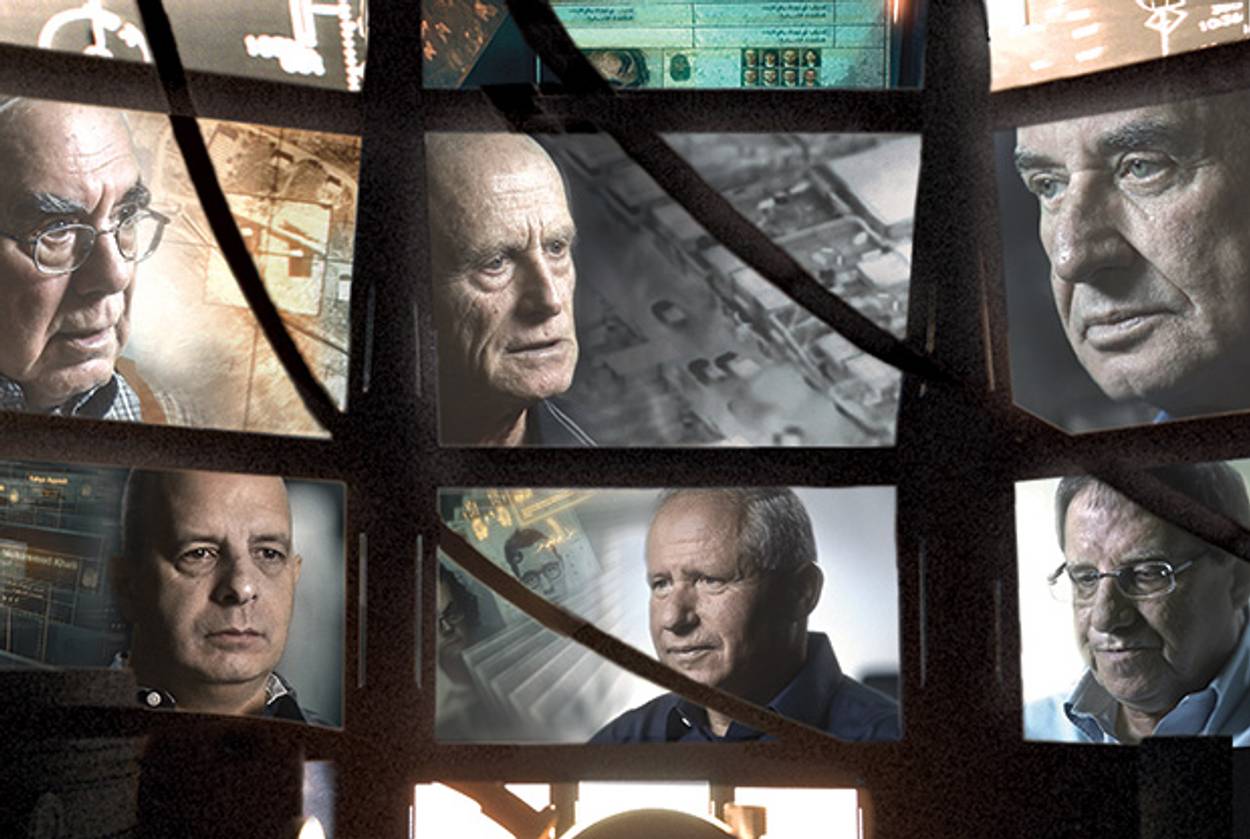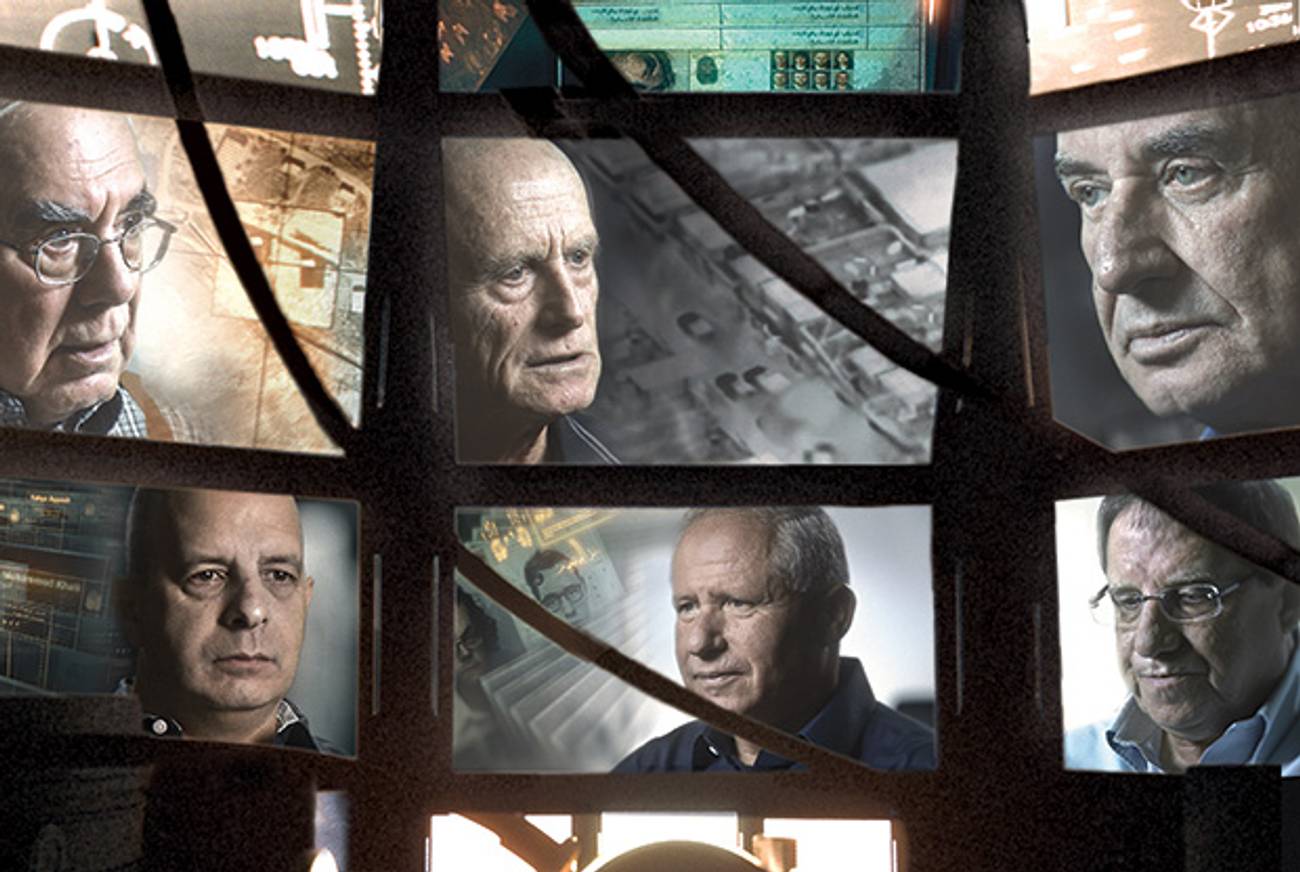Pro-Israel Lobby Overlooks Israel’s Top Films
Why didn’t AIPAC screen The Gatekeepers or 5 Broken Cameras?




As a film enthusiast at my first AIPAC policy conference, I was thrilled that the organization chose to put together a film festival track as one of the options during the breakout sessions. Four films were screened throughout the two-and-a-half day conference, followed by a Q&A session with the filmmaker. But having attended all four screenings, I can’t help feeling like an opportunity to really engage the conference audience was lost. With the wealth of new Israeli films that could have been shown, I have a hard time understanding why they went in the cinematic direction they did. (AIPAC staffers were not available for comment).
Cutting-edge medical and technological innovations may have been showcased at the conference, but the films chosen, all documentaries, don’t reflect that same sense of timeliness. Two of the films are grounded explicitly in Israel’s past: Orchestra of Exiles spotlights the creation of the Palestine Symphony Orchestra—a group whose name, which refers to British Mandate Palestine, had an altogether different meaning in 1936 than it might today—and Quarter to Eight, clocking in at under an hour, which chronicles the strategic brilliance of General Mordechai Hod, who helped Israel win the Six-Day War. Four Seasons Lodge, which was released theatrically several years ago, tells the story of Holocaust survivors who reunite each year in the Catskills—a film which, while certainly moving, makes no mention of Israel.
The one film that does have some relevance to Israel today, and to the U.S.-Israel relationship, is Unmasked Judeophobia, which examines the worsening problem of anti-Semitism and anti-Israel sentiment worldwide. The documentary analyzes recent events such as the Turkish flotilla sent to Gaza, skillfully tackling unsettling material. That it was the only film screened at AIPAC that bears any true connection to the rest of the conference subject matter is, at the very least, disappointing. It’s even more surprising given that there were several compelling films released just this year by the Israeli film industry which cut to the heart of the most pressing issues facing Israel.
The two Oscar-nominated documentaries from Israel this year, The Gatekeepers and 5 Broken Cameras, take on subjects that are undeniably important to AIPAC attendees. The Gatekeepers features six former Shin Bet directors giving unexpectedly frank interviews about how the Israeli government should be doing a much better job working with the Palestinian people. Then there’s 5 Broken Cameras, a film made by a Palestinian farmer in Bil’in who documented the building of a separation barrier in his village. Perhaps The Gatekeepers and 5 Broken Cameras don’t exactly jive with AIPAC’s uber-positive gloss on the future of Israel and the U.S.-Israel relationship—and I certainly have my own issues with both documentaries—but showing them would have presented an excellent opportunity to start important conversations among conference-goers and spark the dynamic cultural exchange we’ve been hearing so much about here.
Another option would have been to showcase the fiction filmmaking out of Israel this year, like Fill the Void, which was made by an Orthodox female filmmaker and focuses on the implications of an untimely death in Tel Aviv’s Haredi community. Or Yossi, Eytan Fox’s intense sequel to his popular 2002 film Yossi & Jagger, the story of two male Israeli soldiers who fall in love. These two films provide a rare, important glimpse into Israel’s religious and LGBT communities, respectively.
The films they chose to screen were, unfortunately, vastly incongruent with the otherwise rich representation of U.S.-Israel accomplishments presented throughout the conference. The option of a ‘film festival’ instead of another lecture or conversation session was an exciting prospect, but the topics covered should have been just as hard-hitting and fresh. AIPAC knows how to make science look good, but its film choices could use some work.
Abe Fried-Tanzer, a Jewcy contributor, writes about film at www.movieswithabe.com.